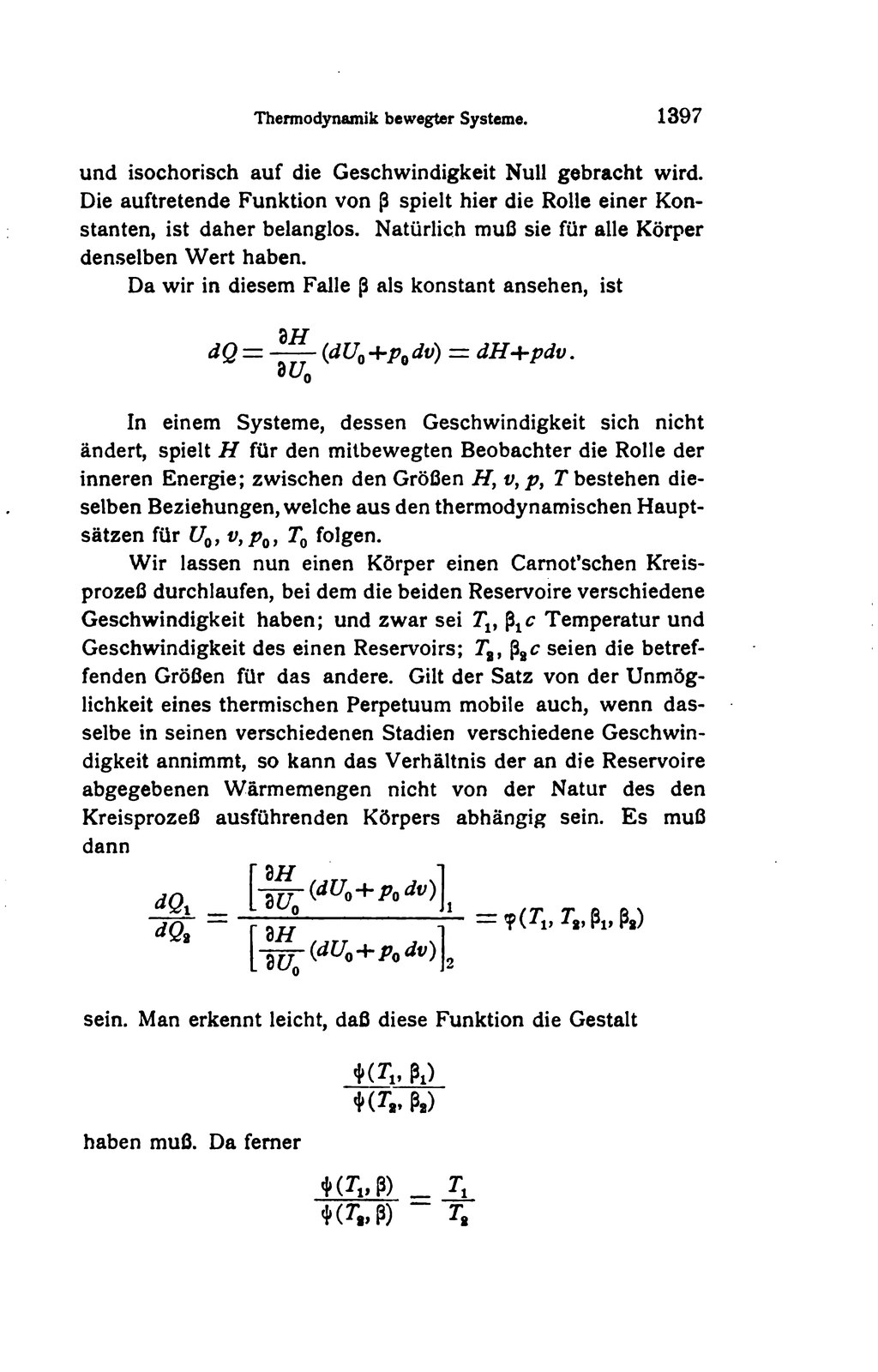and isochorically brought to velocity zero. The arising function of plays here the role of a constant, so it is irrelevant. Of course, it must have the same value for all bodies.
Since we see as constant in this case, it is
In a system whose velocity isn't changing, plays the role of the inner energy for a co-moving observer; between the quantities the same relations exist, which follows from the thermodynamic main-theorems for .
Now, let a body pass through Carnot's circular process, in which the two reservoirs have different velocities; namely, are the temperature and velocity of one reservoir; are the relevant quantities for the other one. If the theorem of the impossibility of a thermal perpetual motion machine is also valid when it assumes different velocities in its different stages, then the ratio of the heat quantities given off to the reservoirs cannot depend on the nature of the circular process. Then it must be
One can easily see, that this function must have the form
Furthermore
must be the case as well,







![{\displaystyle {\frac {dQ_{1}}{dQ_{2}}}={\frac {\left[{\frac {\partial H}{\partial U_{0}}}(dU_{0}+p_{0}dv)\right]_{1}}{\left[{\frac {\partial H}{\partial U_{0}}}(dU_{0}+p_{0}dv)\right]_{2}}}=\varphi (T_{1},T_{2},\beta _{1},\beta _{2})}](https://wikimedia.org/api/rest_v1/media/math/render/svg/3c1eeaca28a55b1c70d45b4bce261e979f985656)


